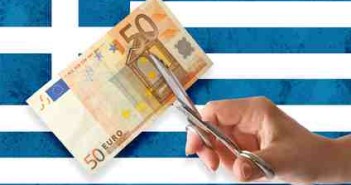Late in 2012, Greece received the long awaited tranche of aid, after executing a bond buyback program, amid other measures. The attention of financial markets has moved away from Greece, but the problems remain.
One of the biggest issues is tax collection: new taxes can be introduced, existing taxes can be raised, but the revenue sides is still problematic. And while the cuts helped reach a primary surplus, the government arrears are still high.
Between January and November 2012, expired debts reached 12 billion. Together with previous outstanding tax debt, Greeks own the country 55.5 billion euros. Some of the debt is lost: companies have gone bankrupt, but some are due to tax evasion.
The EU / ECB / IMF troika calculates that 80% of this debt cannot be collected. However, there are still around 11-12 billion euros of debt that can be collected. The troika now wants the government to put its hand into the accounts and review the policy for writing down debt.
The situation in Greece remains troubling, with rating agency Moody’s saying that the debt remains unsustainable. Angela Merkel already sent a trial balloon regarding debt forgiveness from European governments, something the IMF asked for.
The good news from Greece is that the country already reached a primary surplus (a surplus excluding interest payments) in these months: January-November. A surplus of 2.3 billion euros countered a deficit of 3.6 billion in the same period 2011.
It’s important to note that this surplus is also thanks to government arrears: 8.56 billion euros. Greece needs to reach a primary surplus of 4.5% of GDP up to 2016, according to the new terms
Further reading: EUR/USD forecast.



